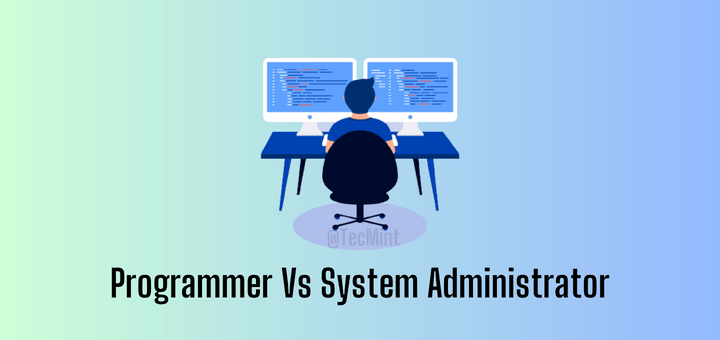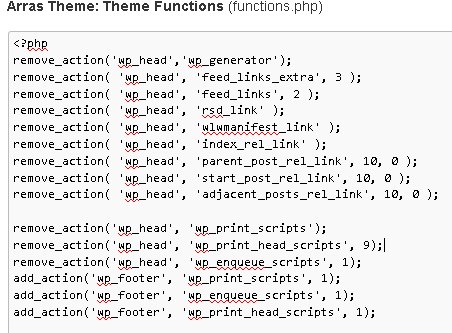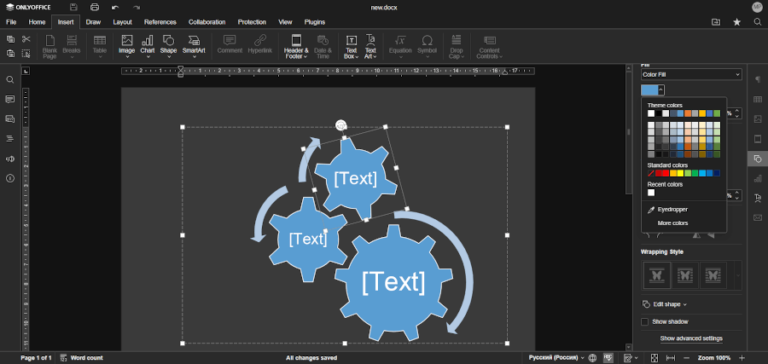
Careers in the technology space and broad and diverse and require different sets of skills. Programming and Systems Administration are two occupations that stand out and you are likely to find professionals in these fields in almost every company.
The rising demand for programming and administration skills has opened doors to freelancers who bridge the gap and work for companies seeking experts in the same field.
In this tutorial, we explore differences between Programmers and System administrators, more specifically in terms of the skillsets.
Who is a Programmer?
Programming is the process of writing code to create an application or program that carries out specific tasks.
A programmer is an IT professional who writes code, which constitutes a software application or program. A typical application or program can have hundreds or even thousands of lines of code depending on its complexity.
A computer programmer is sometimes referred to as a software developer and the two can be used interchangeably to refer to the same thing. However, there’s a perpetual debate as to the differences between the two professionals and the scope of responsibilities that programmers and developers can undertake.
There is a bucketful of programming languages in use today. Popular examples include Java, Python, Go, RUST, C, C++, C#, Javascript, and PHP. Although not categorized as programming languages, HTML and CSS are the backbone languages for front-end web development.
The proliferation of programming languages has led to the emergence of various programming niches in the tech industry. Programming has grown in leaps and bounds and rapid growth in the tech industry has led to the emergence of various programming niches.
Let’s explore some of these categories of programmers.
Frontend Developers
Front-End developers are professionals who specialize in designing the visual components of a website or web application. They are tasked with creating the UI (User Interface) of websites and ensuring smooth and immersive UX (User Experience).
As the name suggests, Front-End developers design the look and feel of the websites and ensure all the elements are aesthetically appealing and responsive to user interaction and input. As a Front-End developer, you need to be creative enough in order to visualize how websites will appear to visitors and potential clients.
Must-have skills for front-end developers include:
- HTML & CSS
- Javascript, TypeScript
- Frameworks such as Bootstrap, React, Angular and Vue.JS
- Cross-browser compatibility
- Responsive Design
- Version Control such as Git.
Backend Developers
Backend refers to everything that happens behind the visual aspects of a website or application. A good example is when you click a button that performs a certain task.
For example, when you click the ‘Sign Up’ or ‘Send Up’ button, although it’s part of the visual aspect of the website, what it actually accomplishes is what is referred to as the backend.
The backend mostly entails server processes, APIs, and interactions with complex and large-scale databases.
Ideally, backend developers should have a firm grasp of front-end languages such as HTML, CSS, and Javascript to be able to work efficiently. However, more importantly, they need a solid foundation in backend technologies such as:
- Java
- Python
- Perl
- .NET
- Ruby on Rails
- Node.JS
- C
- Database technologies such as SQL, PostgreSQL, and NoSQL databases such as MongoDB and Redis.
- API development
- Testing and Debugging Tools
- Git Version Control
Fullstack Developers
If you combine the skills of a front-end and back-end developer, you end up with a full-stack developer. A full-stack web developer is tasked with developing websites from the ground up: from the visual elements such as the website layout, typography, and responsiveness, to the backend architecture.
As a result, a full-stack developer is one of the most valuable and sort after developers and commands an attractive pay package. Expectedly, a full-stack developer will have a combination of skills drawn from a front-end and back-end developer.
Mobile Developers
Mobile applications – both Android and iOS – are a critical part of our everyday life. You use them every day, whether you are on social media, ordering lunch or dinner, checking out the news or weather, or simply playing a game on your phone.
Mobile developers are professionals who develop and test mobile applications, which requires a skill set in the following languages:
- Java
- Kotlin
- Swift – For iOS apps
- Objective C
- React Native
- React.JS
Database Developers
Databases are ubiquitous and any tech stack, cloud application, or centralized enterprise application relies on one or more databases to store and replicate data. The more intricate an application is, the more the need for stable and robust database management systems.
A database developer is a professional with mastery of how databases work. Database developers create and maintain databases and ensure efficient storage of data. In addition, they are responsible for designing and implementing new databases and ensuring existing ones are well-updated and tweaked to accommodate changing requirements of the application.
A database developer needs to have the following set of database skills:
- SQL relational databases such as MySQL, PostgreSQL, Microsoft SQL server, etc.
- NoSQL databases including MongoDB, Redis, Apache Cassandra, CouchDB, etc.
- Oracle
- IMB DB2
- Data Analysis
- Linux / UNIX operating systems.
Game Developers
The global video game industry is an enormous industry that has taken the world by storm for a while now. Revenue from the global gaming industry in 2022 was estimated at nearly USD 347 billion. In fact, so big is the gaming industry so that it is estimated to be almost four times as much as Hollywood according to statista.com
The growth of the gaming industry is necessitated by the constant innovation of gaming consoles such as Xbox and PlayStation which command enormous popularity and demand globally
This has, in turn, driven up demand for gaming programmers. These are programmers who focus entirely on writing code for developing games on various platforms be it Windows, Mac, Linux, Android or iOS
To be a successful game developer, you need deep knowledge and understanding of gaming engines such as:
- Unreal Engine
- Godot
- Cry Engine
- Unity
And many more. Equally important, is the mastery of the following programming languages:
- C and C#
- Java Javascript
- Python
- HTML and CSS
System Hardware Programmers
System or hardware developers are programmers who focus on writing code using low-level programming languages specifically for firmware. This is a program or microcode that is embedded in non-volatile memory such as ROM (Read Only Memory). It contains instructions on how the computer will handle and manage hardware devices.
Firmware is an inherent part of the hardware and cannot be modified. Another example of firmware is BIOS (Basic Input Output System) which runs checks during booting and ensures all components are running as expected.
Widely used languages used by system or hardware programmers include:
- Embedded C and C++
- Java
- Python
In addition to this, system programmers should be well acquainted with the ins and outs of system architecture and how various components communicate with each other on a hardware level.
So far, we have summarized some of the biggest and most common categories of programmers. While this is not a comprehensive list of all programmers in the industry, these programmers develop apps, tools, and services that we interact with on a daily basis.
Let’s now switch focus and have a look at System Administrators.
Who is a Systems Administrator?
System administrators are IT professionals who are in charge of an organization’s computing environment. They carry out a diverse mix of operations including ensuring optimal performance and maximum uptime of an organization’s core IT services and systems.
In addition, they are tasked with deploying, configuring, and maintaining servers as well as troubleshooting any faults. From time to time, system administrators carry out assessments and roll out new technologies in response to the growing needs of an organization.
In summary, the crucial functions of a systems administrator include:
- Installation and configuration of software applications.
- Ensuring the security of servers and applications by implementing measures such as access controls, firewalls, etc.
- Monitoring of servers and applications and ensuring maximum possible uptime.
- Setting up user accounts.
- Automating repetitive and tedious tasks.
- Carrying out server backups.
- Troubleshooting connectivity issues and outages.
Given the nature of responsibilities that a systems administrator is tasked with, the following skills are crucial in order to help them accomplish their tasks.
- Competency in administering operating systems such as Windows, Linux, or Mac. More emphasis is placed on Linux since most IT services and applications run on a Linux environment. Still, Windows servers are commonly used in most corporate setups and in-depth knowledge in Windows administration is a huge plus.
- Familiarity with different hardware including servers, firewalls, printers, PCs, etc.
- Sound knowledge of computer networks including how to configure and maintain LANs (Local Area Networks) and WANs (Wide Area Networks).
- Cloud computing skills. Familiarity with Cloud platforms such as AWS, Microsoft Azure, Office364, and Google Cloud to mention a few is a huge plus, especially in organizations that host their application on Cloud.
- Knowledge in virtualization platforms such as Vmware Esxi and VSphere, VirtualBox, OpenStack, etc.
- A deep understanding of containerization platforms such as Docker and Podman along with container orchestration tools such as Kubernetes and Docker Swarm.
IT Certifications For System Administrators
Ideally, it’s expected that Systems administrators, and in fact most IT professionals, have one or more IT certifications. Not only does a certification prove that you are qualified for the job, but it also increases your chances of landing a lucrative job and scaling up the corporate ladder.
Depending on the role or technologies used, here are some of the most in-demand certifications for a beginner-level system administrator.
- RHCSA – Red Hat Certified System Administrator
- RHCE – Red Hat Certified Engineer
- LPIC – Linux Professional Institute Certification
- MCSA – Microsoft Certified System Administrator
- MCSE – Microsoft Certified System Engineer
- CCNA – Cisco Certified Network Administrator
- CKA – Certified Kubernetes Administrator
Our Take
Both professions are lucrative and continue to be in high demand in the modern IT industry. You can settle for the occupation you are comfortable with depending on your strengths and capabilities. We recommend that you do some introspection and settle on the profession that you are passionate about and desire to develop yourself in.





